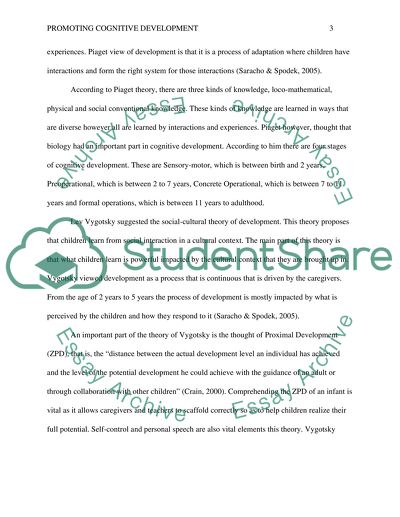Cite this document
(“Promoting Cognitive Development Research Paper Example | Topics and Well Written Essays - 1500 words”, n.d.)
Retrieved from https://studentshare.org/psychology/1654491-promoting-cognitive-development
Retrieved from https://studentshare.org/psychology/1654491-promoting-cognitive-development
(Promoting Cognitive Development Research Paper Example | Topics and Well Written Essays - 1500 Words)
https://studentshare.org/psychology/1654491-promoting-cognitive-development.
https://studentshare.org/psychology/1654491-promoting-cognitive-development.
“Promoting Cognitive Development Research Paper Example | Topics and Well Written Essays - 1500 Words”, n.d. https://studentshare.org/psychology/1654491-promoting-cognitive-development.


